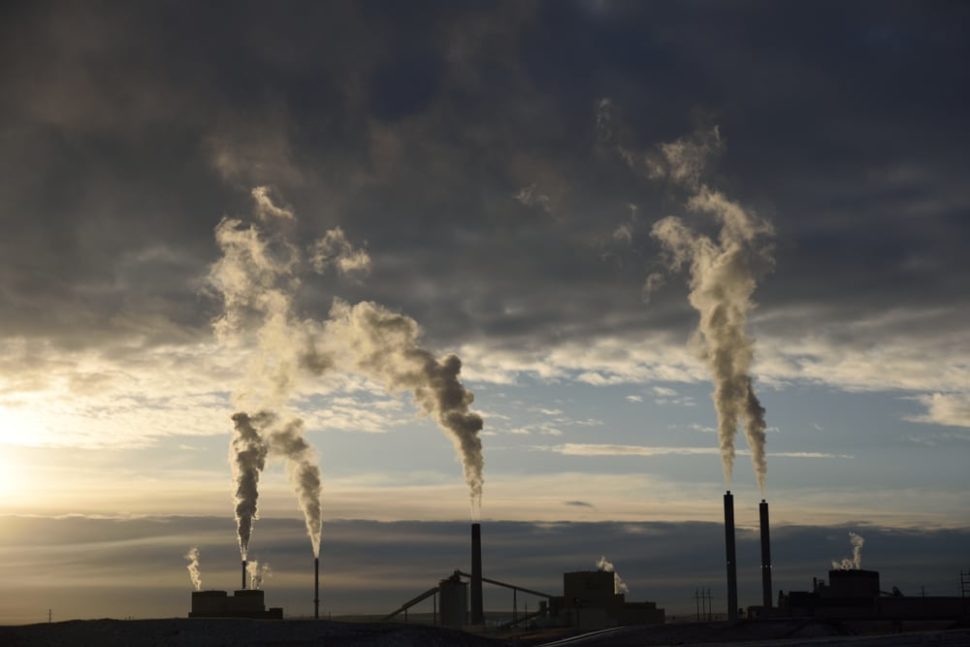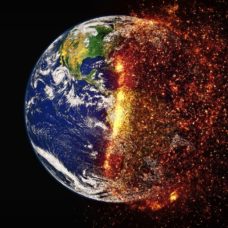Despite rising environmental pressures against dwindling reserves and prices, the Algerian government is intensifying fossil fuel investments.
By the time oil was first discovered in the Sahara, the Algerian War of Independence (1954–62) against France had been raging on for about two years.
This new source of oil raised the stakes for France, which later used the desert as a bargaining chip in the negotiations to end the war.
For the nascent Algerian nation, oil loot eyed by France represented one of the most valued spoils of war.
Since then, Algeria has relied almost exclusively on fossil fuels (oil and natural gas) to sustain its economy against the backdrop of the post-war population boom.
While a wave of energy transition is moving forward around the world, the symptoms of Algeria’s acute dependence on fossil fuels seem to be going from bad to worse.
Is pumping more money into fossil fuels the right move for my country? Especially now that climate change is being considered as a global security risk, and time calls for fossil fuel divestment?
Algeria Doubles Down on Fossil Fuels
Lying on the southern shore of the Mediterranean, Algeria extends deep into the African continent, with four-fifths of the country’s land covered by desert.
Awash with sunlight almost year-round and open to the four winds, the Algerian Sahara has a huge wind power and solar potential that remain mostly untapped. Not to mention geothermal, biomass, and hydropower resources scattered around the country.
Algeria’s geographical location positions it to be a world leader in renewable energies. Yet the government continues to sink more money into the dwindling fossil fuels beneath the sands.
Algerian decision-makers seem to fear losing their positions and backlash from the population, especially after the events of the so-called “Arab Spring” in neighboring countries. This has led Algerian officials to implement populist reforms that weigh heavily on the country’s finances.
The Algerian regime seems more interested in spending on its short-term “survival” over long-term vision focusing on an energy transition to secure clean energy economy.
Read More: New CDKN Initiative Brings Climate Knowledge to Developing Areas
Ironically, last May, Ould Kaddour, the CEO of the state-owned energy company, Sonatrach, threw the words “long-term” and “gradual” when he addressed the subject of an energy transition for OPEC member Algeria.
Sonatrach, which exerts a monopoly over the Algerian market, is one of the world’s largest oil and gas producers, exporters, and transporters. With a share of 6.1%, the company is the fifth largest natural gas exporter in the world.
“We want to invest in solar, but it requires a lot of money, I would like to know where we could get this money,” said Sonatrach boss, admitting that Algeria will remain dependent on hydrocarbons for the foreseeable future.
I can tell you where all the money is going and should be redirected from: fossil fuel projects.
Fossil Guns Blazing: Latest Fossil Fuel Investments in Algeria
In 2017 alone, Sonatrach invested $8.2 billion in the development of oil and gas upstream operations, such as exploration and production, and over the next four years (2018-2022), the company intends to lay out another $56 billion.
And this isn’t where the smart money should go.
Algeria is multiplying partnerships with international firms and intensifying fossil fuel investments in projects to boost its production capacities.
No less than 37 wells were dug in Timimoun gas field in a joint project between Sonatrach, which holds 51% of the project shares, and two international partners (French Total, 37.75% of shares, and Spanish Cepsa, 11.25%).
Last March, the complex started pumping out 5 million cubic meters of natural gas per day.
Since December 2017, Reggane Nord gas fields (southwest) started production of around 8 million cubic meters of gas per day. The gas complex – developed by a consortium of 4 companies, Sonatrach, Repsol (Spain), DEA Deutsche Erdoel (Germany), and Edison (Italy) – is expected to yield about 4.5 billion cubic meters annually.
In a third project, Sonatrach, Neptune Energy (independent company), and Engie (France) developed 40 wells in the Touat gas fields. These wells have a daily output of 12.8 million cubic meters (4.5 bn m3 of gas and 630,000 barrels of condensates per year).
Sonatrach is also seeking to develop its long-neglected downstream operations.
“We import more than USD 1 bn per year of fuel, and that doesn’t make sense,” said Sonatrach CEO. “We want to create an added value to our gas and the petrochemical processing will be the most important development for Sonatrach in the current century.”
In a controversial move, Sonatrach acquired the Augusta Refinery (Sicily, Italy) from ExxonMobil for about $1 billion.
Pushed by urgent concerns like dropping oil prices and rising fuel import bills, Sonatrach will refine its crude oil in Italy and then bring it back to Algeria as gasoline and diesel.
The company is also working out deals with major oil companies like BP, Chevron, and Shell to establish a joint trade venture.
To sustain its public spending frenzy, Algeria is also setting its eyes on unconventional fossil fuels. In fact, the country happens to hold one of the biggest shale gas basins in the world. With recoverable reserves estimated at about 707 trillion cubic feet and 5.7 billion barrels of tight oil, Algeria ranks third after China and Argentina.
Dirty Energy: Ban, Divest, Redirect!
The billions of dollars Algeria shells out for dirty energy is part of global fossil fuel investments estimated at over $800 billion in 2016.
Currently, Algeria allocates immense funds to maintain fossil fuel infrastructures and launch new oil-based projects. Interestingly, the country still manages to save some “ink” for climate action.
In fact, Algeria is a “serial ratifier” of international climate agreements.
And its “ratification” history goes back a long way. Algeria has participated in all of the following climate agreements:
- UN Framework Convention on Climate Change (ratified in 1993)
- Convention on Biological Diversity (1995)
- UN Convention to Combat Desertification (1996)
- Kyoto Protocol (2004)
- Paris Agreement: came into effect (Nov. 4, 2016) and Algeria was among the first nations to ratify it (Oct. 20, 2016)
On paper, Algeria is one of the most responsible countries when it comes to climate awareness and policies.
In reality, however, the world is heating up, and Algeria doesn’t seem to budge.
In 2018, CO2 concentrations in the atmosphere hit record levels, the highest in 800,000 years.
Climate change is perhaps the biggest existential risk humanity has ever faced, and one that calls for the involvement of each and every nation, regardless of its historic contribution to this snowballing problem.
The Mediterranean Basin is one of climate change hotspots in the world, and as the biggest country in the region, Algeria is more and more vulnerable to these changes.
The insidious effects of climate change are particularly noticeable in the north, where much of Algeria’s overall population of 42 million people are concentrated. But, the truth is that these effects are rippling through the whole country.
For instance, recent extreme weather includes snowfall in the desert, diluvial rains, hail storms, droughts, hot and dry spells, and other unseasonal events on the region.
Developing renewable capacities alone is an area where Algeria is lagging way behind, and in parallel with ongoing fossil fuel investments, won’t amount to much.
Last year, over 80 economists from 20 countries issued a declaration that insisted on the need for a total and immediate cessation of fossil fuel investments projects that harm the planet. The declaration also noted serious socio-economic effects and called for a massive increase in clean energy investments.
Serious doubts exist about Algeria’s ability to reduce its greenhouse gas emissions and fulfill its commitments under the Paris Agreement. In the face of the catastrophic consequences of climate change, it is more than an urgent case to launch a divestment campaign and reorient oil and gas funds for a sustainable future.
Algeria must end its complicity in the climate crisis and the destruction of the planet, for the sake of its own survival — all the more so because it’s well-positioned to run on 100% clean energy.

















Comments (0)
Least Recent